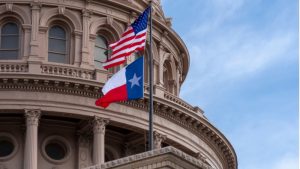The Federal Communications Commission (FCC) said it will commit another $86 million in the tenth wave funding to its Emergency Connectivity Fund (ECF) program.
The Ferguson-Florissant School District in St. Louis, Mo., has partnered with TutorMe, an online tutoring solution, to reach more than 11,000 K-12 students.
Researchers at the University of Missouri (UM) will use $12 million in grant funding to teach science to middle schoolers and improve literacy outcomes for second graders.
Governments are dealing with a big spike in cybercrime, and as international ransomware attacks escalate, state and local governments are being increasingly targeted. Texas is not immune to the trend, and state Chief Information Security Officer (CISO) Nancy Rainosek provides a unique look at how the Lone Star State is reacting to the crime wave with a blow-by-blow description of a serious ransomware attack.
The Cybersecurity and Infrastructure Security Agency (CISA) has launched a new webpage featuring a catalog of free cybersecurity tools and resources that the agency hopes will serve as a “one-stop resource where organizations of all sizes can find free public and private sector resources to reduce their cybersecurity risk.”
The state of Montana has taken two major steps to help close the digital divide. Montana Gov. Greg Gianforte announced both that the state released a new statewide broadband service map, and has opened applications for its ConnectMT Program.
University professors and Tribal leaders are using a grant from the National Science Foundation (NSF) to develop narrative technology tools to address the lack of representation of Indigenous culture, history, and stories in K-12 classrooms.
When it comes to managing IT for state and local governments, there are several challenges according to a new survey on IT Service Management (ITSM) in the public sector from eRepublic.
The state of Alabama is rolling out a new modernized driver license system, replacing a decades-old system.
The Federal Communications Commission (FCC) has adopted rules intended to unlock broadband competition for those living and working in apartments, public housing, office buildings, and other multi-tenant buildings.













